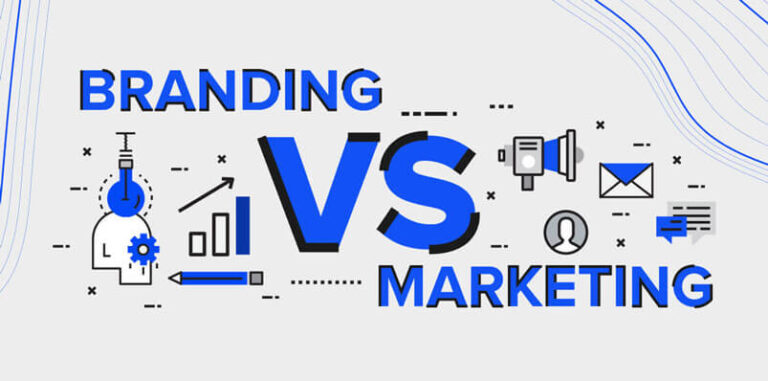In today’s business world, two key concepts—branding and marketing—play a vital role in the success of organizations. Although these two terms are sometimes used interchangeably, they actually represent different ideas and goals. This article explores the differences, interconnections, and importance of each of these concepts.
What Is Branding?
Branding is the process of creating a unique identity for a business or product. This identity includes visual elements such as logos, colors, and fonts, as well as the brand’s values, mission, and personality. Branding aims to build emotional connections and customer loyalty, leaving a long-term impact on how customers perceive and feel about the brand.
Examples of Successful Branding:
- Apple: By focusing on innovation, minimalistic design, and exceptional user experience, Apple has built a distinct identity that keeps its customers loyal.
- Nike: The slogan “Just Do It” has become more than a marketing phrase—it has turned into a life philosophy that inspires millions around the world.
What Is Marketing?
Marketing refers to a set of activities and strategies aimed at introducing and promoting products or services to a target market. Its main goals are to attract new customers, increase sales, and raise brand awareness. These activities include advertising, public relations, digital marketing, market research, and more.
Examples of Effective Marketing:
- Spotify Wrapped: The annual campaign by Spotify that provides users with a summary of their listening activity is an example of personalized and effective marketing.
- Coca-Cola: Coca-Cola’s Christmas ads, featuring symbols like the red truck and Santa Claus, evoke nostalgia and joy in audiences.
Key Differences Between Branding and Marketing
| Aspect | Branding | Marketing |
|---|---|---|
| Goal | Create a unique identity and long-term emotional bond | Attract customers and boost sales in the short term |
| Time Focus | Long-term | Short-term |
| Approach | Strategic | Tactical |
| Customer Interaction | Builds loyalty and trust | Drives action (purchase, sign-up, etc.) |
| Consistency | Requires consistency in messaging and identity | Requires flexibility and market adaptation |
The Relationship Between Branding and Marketing
Branding and marketing are complementary elements that must work in harmony. Branding lays the foundation of the business’s identity, while marketing introduces this identity to the market and helps attract customers.
Example: Starbucks
Starbucks has built a strong brand by creating a warm and friendly atmosphere in its stores. The brand’s marketing, by emphasizing customer experience and storytelling, reinforces this identity.
Personal Branding Process: Starting an Influential Journey
Conclusion
Ultimately, to achieve long-term success in the market, businesses must pay attention to both branding and marketing simultaneously. Branding helps create a unique identity and foster emotional connections with customers, while marketing introduces that identity to the market and aids in attracting and retaining customers.


